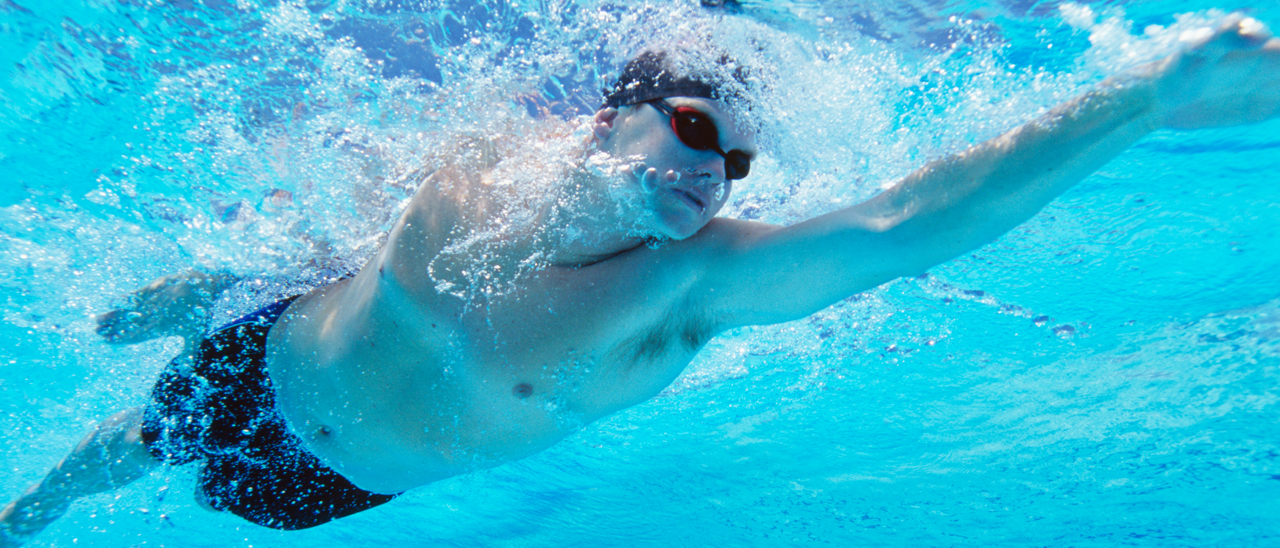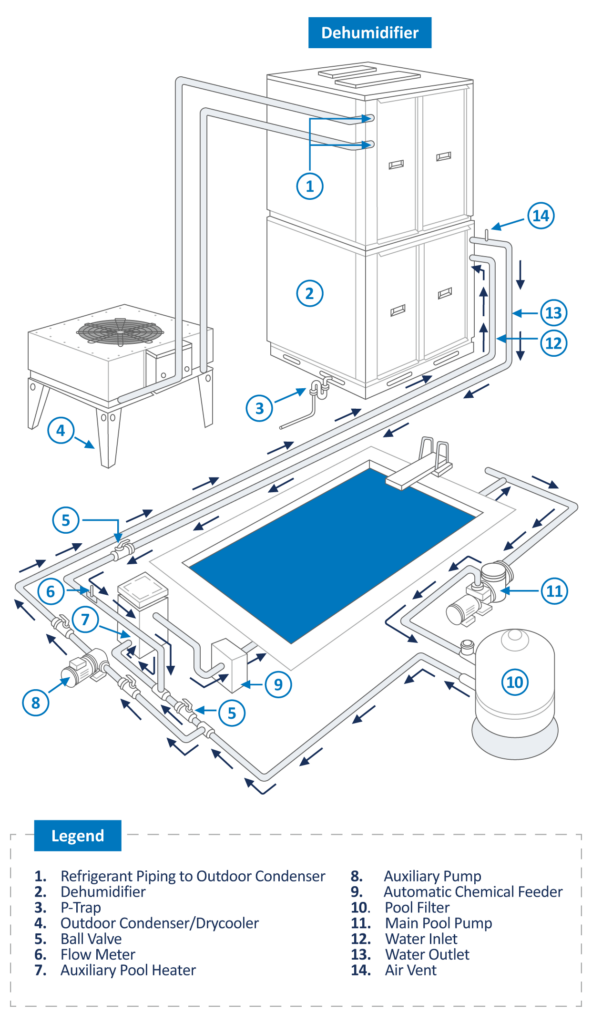Everything Engineers, Contractors, and Owners Need to Know to Create the Optimal Indoor Pool Environment.
CHAPTER ELEVEN
The designer should address the following issues to ensure the unit is properly installed and can be serviced and maintained.
ACCESS SPACE
Access to a unit must be safe. If a technician cannot safely and comfortable access a unit, it cannot be optimally serviced.
No Access = No Service or Maintenance.
Refer to factory submittal drawings for recommended clearances.
POOL WATER HEATING (OPTION)
This option can contribute considerable energy savings over the life of the system. A quick calculation of the annual energy savings can help establish the return on investment. This option is simple to design into the pool water circuit.
- The water circuit should tap off the main pool water line downstream of the main filter and upstream of the auxiliary pool water heater and chemical feeder (see Figure 17).
- An auxiliary water pump to deliver the unit’s required water flow rate is required. This is an open system, and the pool’s main circulating pump can rarely accommodate additional system pressure.
OUTDOOR AIR COOLED DRY COOLER OR CONDENSER INSTALLATION
This heat exchanger is used in air conditioning mode where it rejects unneeded heat from the space to outdoors. Proper installation is essential to ensure it functions as intended. Proper airflow and refrigerant piping are paramount.
- Ensure an appropriate maximum ambient air temperature has been specified.
- Ensure the unit has proper airflow and that the discharged air from the fan can escape fully; otherwise, operational problems will result. A perimeter of free area equal to its width must be provided as well as a means for the air off the unit to dissipate.
- Use line sizes as specified by the manufacturer.
- To avoid potential seasonal system charge problems with outdoor condensers, ensure the installed line lengths are never longer than indicated on the plans and specifications.
- If the condenser is installed above the dehumidifier, ensure the hot gas line has proper oil traps.
- Contact the manufacturer if the condenser is to be installed more than 50 feet away or eight feet below the dehumidifier. There are some absolute limitations that cannot be exceeded without jeopardizing system reliability and operation.
- Specify the lines be nitrogen purged while being brazed to help avoid scaling inside the pipe.
- All the refrigeration requirements disappear when using fluid-cooled systems or dry cooler systems!


